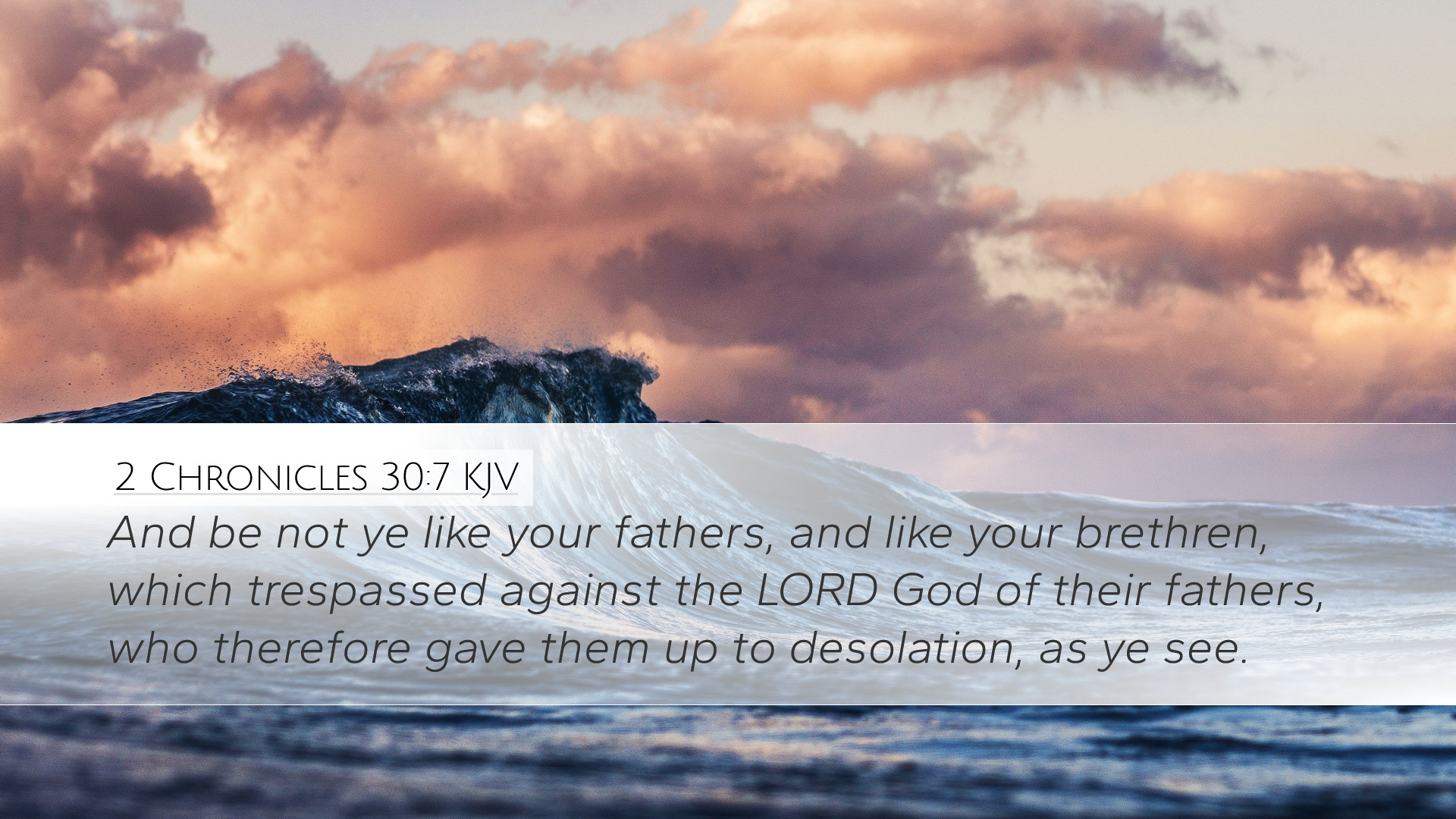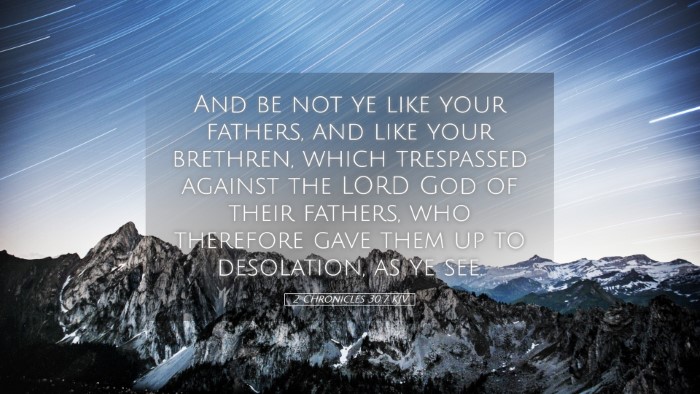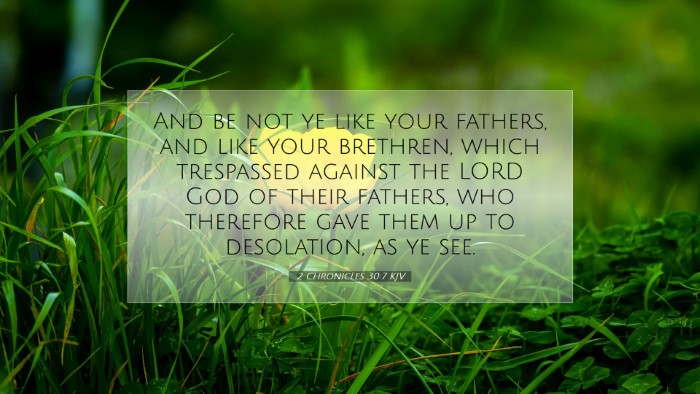Commentary on 2 Chronicles 30:7
The verse 2 Chronicles 30:7 states:
"And be not ye like your fathers, and like your brethren, which trespassed against the
LORD God of their fathers, who therefore gave them up to desolation, as ye see."
Contextual Overview
This verse is set against the backdrop of King Hezekiah's efforts to restore the worship of
Yahweh in Judah. Following a period of idolatry and neglect of the Temple, Hezekiah calls
the people to return to the worship of the one true God. His message is clear; he urges
the people not to follow in the footsteps of their forebears who brought judgment upon
themselves through disobedience.
Thematic Elements
- Historical Reflection:
The context highlights the failure of previous generations to heed God's commandments.
Matthew Henry notes that the mention of "fathers" and "brethren" serves as a stark
reminder of the consequences of their actions. The historical disobedience led to
divine abandonment, which should resonate as a warning to the current generation.
- Call to Repentance:
Hezekiah's call is inherently a call to repentance. Albert Barnes emphasizes the
necessity of recognizing past mistakes to encourage sincere contrition and a return
to God. The repentance must be genuine, as it is not merely about relieving guilt but
about forging a renewed covenant with God.
- The Nature of God’s Judgment:
The verse intimates that God's judgment stems from continual disobedience. Adam Clarke
highlights that desolation follows persistent disregard of God's commands, acting as both
a consequence and a serious motivator for turning back to His ways.
Theological Implications
Hezekiah's declaration portrays a crucial theological principle: the importance of fidelity to
God's covenant and the consequences of failing to do so. Each generation has the opportunity
to learn from the failures of the past. The verse underlines the need for discernment in
maintaining a faithful relationship with God, emphasizing that those who rebel face inevitable
repercussions.
Applicational Insights
- For Pastors:
Pastors can draw from this passage to underscore the importance of teaching congregants
about the historical faithfulness of God contrasted against human disobedience. The call to
remembrance and change can be a powerful theme in preaching.
- For Students and Theologians:
This passage can provoke critical reflection on the importance of learning from church history.
It invites students and scholars to explore the long-term effects of disobedience within the
Biblical narrative.
- For Individuals:
Every believer is encouraged to reflect upon their own spiritual journey and the potential
ramifications of turning away from God. Personal application can lead to a more profound
understanding of grace and the need for ongoing repentance.
Conclusion
2 Chronicles 30:7 serves as both a historical reminder and a clarion call for obedience and
repentance. The insights from Matthew Henry, Albert Barnes, and Adam Clarke collectively emphasize
the serious nature of disobedience while simultaneously offering hope through the call to return
to the Lord. The themes explored in this passage remain relevant for today's believers, drawing
from the past to inform faithful living in the present.


